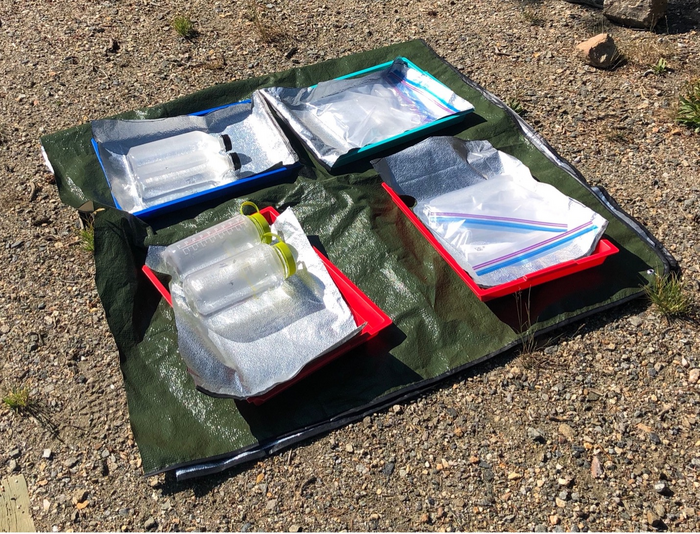Philadelphia, March 1, 2023 – Research shows that solar water disinfection (SODIS) may be just as effective at decontaminating Escherichia coli (E coli) infected water at high altitudes as it is at low altitudes. The results of a new study appearing in the Wilderness Medical Society’s official journal Wilderness & Environmental Medicine, published by Elsevier, show promise for improving global access to safe drinking water.
Water can be successfully disinfected through several methods: heat, filtration, chemical treatment, and ultraviolet (UV) light. The use of natural sunlight for solar disinfection of contaminated water effectively inactivates many microorganisms, including bacteria, viruses, protozoa, and fungi.
A team of researchers at the University of Colorado Anschutz Medical Campus conducted an experimental study to determine the effect of SODIS on water purification at high altitude (defined as above 2,500 meters) compared to low altitude (below 2,500 meters) among different types of water containers.
“No other published research examining the effectiveness of SODIS at high altitude is available to our knowledge. Adequate access to water, sanitation, and hygiene is a crucial component of human health during emergency situations such as natural disasters and extreme weather events, which are becoming prevalent with climate change,” according to lead investigator William Mundo, MD, MPH, School of Medicine and School of Public Health, University of Colorado Anschutz Medical Campus, Aurora, CO, USA.
A study design previously described in the literature was modified, most notably to evaluate the concentration of E coli colony forming units (CFUs) at multiple time points throughout the required six hours of direct sunlight, as recommended by the World Health Organization. Compared to control containers with no sunlight exposure, the researchers found that all bacteria were inactivated by six hours. At two hours, bacterial inactivation at high altitude was 1.7-fold greater than at lower altitude, however, at the end of six hours, there were no significant differences between high and low altitude samples.
The study also found that compared with Nalgene bottles, plastic bottles had a 1.4-fold greater decrease in CFUs. No statistical difference in bacterial inactivation was found between plastic bottles and plastic bags.
Co-lead investigator, Kylie Van Hoesen, MD, School of Medicine, University of Colorado Anschutz Medical Campus, Aurora, CO, USA, commented, “This project highlights how health equity, global health, and wilderness medicine can intersect in the development of research around improving access to safe drinking water across the world in high altitude remote areas.”
While the study highlights some early evidence that SODIS may be used at high altitude to create access to clean and safe drinking water, more research is required to investigate if SODIS is effective at disinfecting other organisms at high altitude before studies involving human subjects are developed.
Journal
Wilderness and Environmental Medicine
DOI
10.1016/j.wem.2022.10.005
Method of Research
Observational study
Subject of Research
Cells
Article Title
Evaluation of Escherichia coli Inactivation at High Altitudes Using Solar Water Disinfection
















